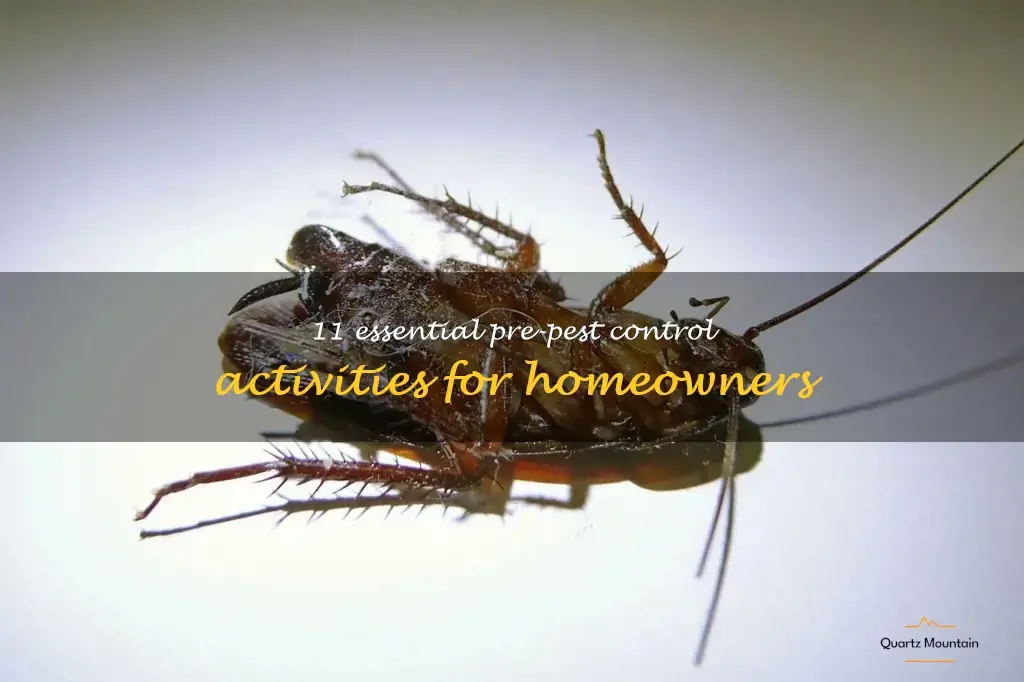
As a homeowner, discovering unwanted pests in your living space can not only be bothersome but also lead to severe infestations and damage. Every homeowner is aware that pest control is a critical undertaking for preserving the hygiene and value of their property. However, many individuals make the mistake of skipping essential pre-pest control activities, which can impact the effectiveness of the pest control treatment. In this article, we will discuss the 11 vital pre-pest control activities that every homeowner should consider before commencing a pest control program.
What You'll Learn
- Seal cracks and holes in the exterior of your home
- Remove clutter and debris from around your property
- Store firewood away from the home
- Keep food in sealed containers
- Install screens on windows and doors
- Properly dispose of trash and recycling
- Keep gutters clean and free of debris
- Trim back trees and bushes that are touching the home
- Fix any plumbing leaks
- Repair any roofing damage
- Consult with a professional pest control company for preventative measures

Seal cracks and holes in the exterior of your home
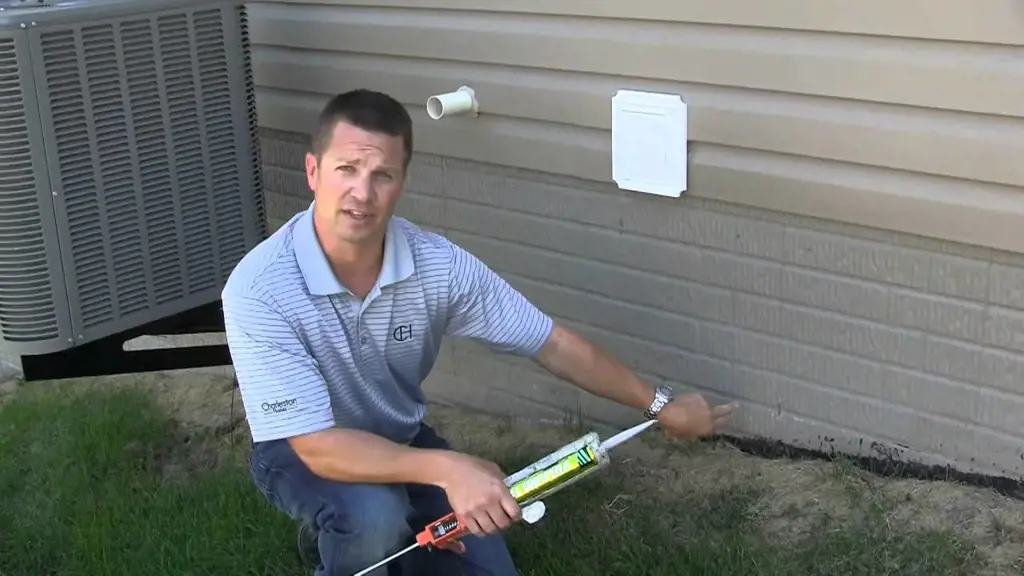
If you're planning on having pest control professionals come to your home, there are a few things you should do prior to their arrival to ensure the process is as effective as possible. One critical step is to seal any cracks and holes in the exterior of your home. Here's why this is important and how you can go about doing it.
Pests like ants, termites, and mice are tiny creatures that can make their way into your home through even the smallest openings. By sealing up any potential entry points, you make it much more difficult for pests to get inside in the first place. This can help prevent infestations from occurring and minimize the chances of future problems.
Beyond that, sealing the exterior of your home can also help with energy efficiency. By sealing up gaps in your home's envelope, you'll be preventing drafts and keeping your heating and cooling inside your home where it belongs. This can translate to lower energy bills, so it's a win-win.
Here are some tips for sealing up the exterior of your home before pest control:
- Walk around the perimeter of your home and look for any obvious cracks or holes. You might find these around windows and doors, near pipes or vents, or in the foundation.
- Use a caulk gun to fill in any small gaps or cracks. Silicone caulk is usually the best choice because it's flexible and waterproof.
- For larger gaps or holes, you might need to use a foam sealant. This will expand to fill the space and create a barrier against pests.
- Don't forget to pay attention to your doors and windows. Weatherstripping around these openings can help keep pests out, while also improving energy efficiency.
- As a bonus, you might also consider sealing up any gaps in your attic or crawlspace. Pests often make their way into these areas, so sealing them up can help prevent problems down the line.
In conclusion, sealing up exterior cracks and holes is an essential step to take before pest control professionals arrive at your home. By taking the time to do this, you can help prevent future infestations, improve energy efficiency, and enjoy greater peace of mind.
12 Exciting Winter Activities in McCall, Idaho
You may want to see also

Remove clutter and debris from around your property
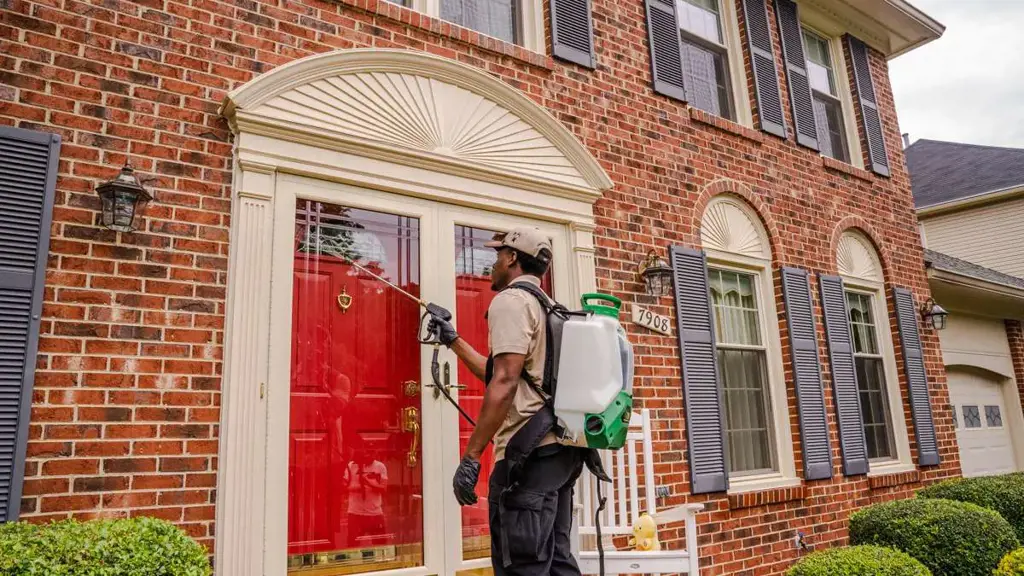
Pest control is an essential process that every homeowner undertakes to keep their property free from harmful insects and rodents. Whether you are experiencing a pest infestation or employing preventive measures, there are a few things you must do before pest control. One of those essential steps is removing clutter and debris from around your property. In this article, we will delve deeper into why eliminating clutter and debris is crucial before pest control and how to go about it.
Clutter and debris not only provide cover and nesting sites for pests but also make it more challenging to detect and control infestations. They can also obstruct the insecticides' reach, rendering pest control measures less effective. Pests can establish homes and start breeding in any cluttered or debris-filled area around your property. Garbage and debris around your yard can also attract and encourage pest activity. Therefore, it is vital to remove anything that invites or harbors pests before pest control.
How to Remove Clutter and Debris Before Pest Control
- Conduct a Thorough Inspection: Before beginning the cleanup process, inspect your property to identify the main clutter and debris hotspots. Note the areas where pests are likely hiding and breeding.
- Clear Out Overgrown Vegetation: Clear out overgrown trees, shrubs, and bushes that serve as hiding places for pests. Cut them back, so they no longer touch buildings or homes to reduce the likelihood of pests gaining access to your property.
- Store Firewood Off the Ground: Pests such as termites, ants, and rodents love to hide and breed in stacks of firewood. Avoid storing firewood against your home as they may use the wood to gain access into your home.
- Clear Out Fallen Leaves and Debris: Remove fallen leaves and debris around your yard, especially in damp areas where pests like to hide. These piles can create moist environments that can encourage pest activity and harborage.
- Eliminate All Standing Water: Standing water is a breeding ground for mosquitoes, which can transmit dangerous diseases to humans. Remove all stagnant water sources, including pet water bowls and bird feeders.
- Get Rid of Clutter: Clean up any clutter lying around your property such as paper, cardboard boxes, and old furniture. Pests such as cockroaches and rodents thrive in these materials. Consider disposing of these items or using proper storage containers.
In conclusion, removing clutter and debris from around your property is a vital step towards effective pest control. You will lower the risk of pest infestations, mitigate the use of harmful insecticides and have a safe and healthy living environment. Follow the above mentioned steps to remove clutter and debris and live pest-free with peace of mind.
14 Fun and Free Things to Do in Boise, Idaho
You may want to see also

Store firewood away from the home

As homeowners, we all have the responsibility to keep our living spaces clean and free from any pest infestation. This can be done by executing thorough pest control measures that can effectively eliminate the presence of these unwanted bugs.
Before a pest control service arrives at your house, there are certain things that you need to do to prepare your home for the process. One of the things that need your attention is storing firewood away from the home.
Why is it important to store firewood away from the house before pest control? Here are a few reasons to keep in mind:
Prevention of Pest Infestation in the Firewood
Most of the pests like to hide in cracks and crevices, and firewood is no exception. Insects like termites, ants and beetles are especially attracted to wood, and they are usually found living and breeding inside. If firewood is kept near your home, it can quickly become a harborage site for the pests, and they can easily spread to the rest of your living area.
To prevent such infestations, it is recommended that you store firewood at least 20-25 feet away from your house and 5 feet above the ground. This way, pests won't be able to move from the wood to your home. If possible, store the wood in a covered area to protect it from rain and dampness.
Protection of Your Home Interiors
In addition to preventing pests from entering your home, storing firewood properly will also protect your home interiors. When you place the wood near your home, it can attract moisture, and this moisture can seep into your home's foundation, walls, and floors, causing damage and weakening the structure.
Moreover, firewood can cause issues in other ways as well. Splinters, wood chips, and debris from the wood can make indoor air quality worse by releasing chemicals and fungi.
Fire Hazard
Firewood that's kept too close to your home can also be a fire hazard. During pest control treatment, chemicals may be used to kill the pests, and if the firewood nears the house, it can quickly catch fire.
In summary, storing firewood away from your home is a must-do before pest control. This will help prevent pest infestations, protect your home interiors, and prevent fire hazards. Make sure to follow these firewood storage practices all year-round, even outside of pest control treatments.
11 Fun Activities for Kids to Enjoy in Bangor, Maine
You may want to see also

Keep food in sealed containers

Pest control can be an effective way to eliminate unwanted insects and rodents from your home. However, there are a few things that you should do before the pest control technician arrives to ensure that the treatment is as effective as possible. One of the most important things to do before pest control is to keep your food in sealed containers. Here's why:
- Prevent contamination: Pest control treatments can involve the use of chemicals and other substances that can be harmful if ingested. If your food is not stored properly, there is a risk that it could become contaminated with these substances and make you or your family members sick.
- Keep pests out: Pests are attracted to food, so leaving it out in the open can attract even more pests to your home. By keeping your food in sealed containers, you can help to keep pests out and make your home less attractive to them.
- Protect your food: Even if you don't have a pest problem, keeping your food in sealed containers can help to protect it from other forms of contamination, such as dust, dirt, and other debris that might be present in your home.
When it comes to choosing containers to store your food in before pest control, there are a few things to keep in mind. First, make sure that the containers are airtight to prevent pests from getting in. Second, choose containers that are made from non-porous materials like plastic or glass, which are easier to clean and less likely to harbor bacteria. Finally, label your containers with the type of food inside and the date it was stored, to help you keep track of what you have on hand.
In addition to keeping your food in sealed containers, there are a few other things you should do before pest control. These include cleaning your home thoroughly to remove any debris or clutter that pests might be attracted to, sealing up any cracks, holes, or gaps in your home's exterior, and removing any standing water that could attract mosquitoes or other insects. With a little bit of preparation, you can help to ensure that your pest control treatment is as effective as possible.
11 Must-Try Activities in Coral Bay for Adventure Seekers
You may want to see also

Install screens on windows and doors
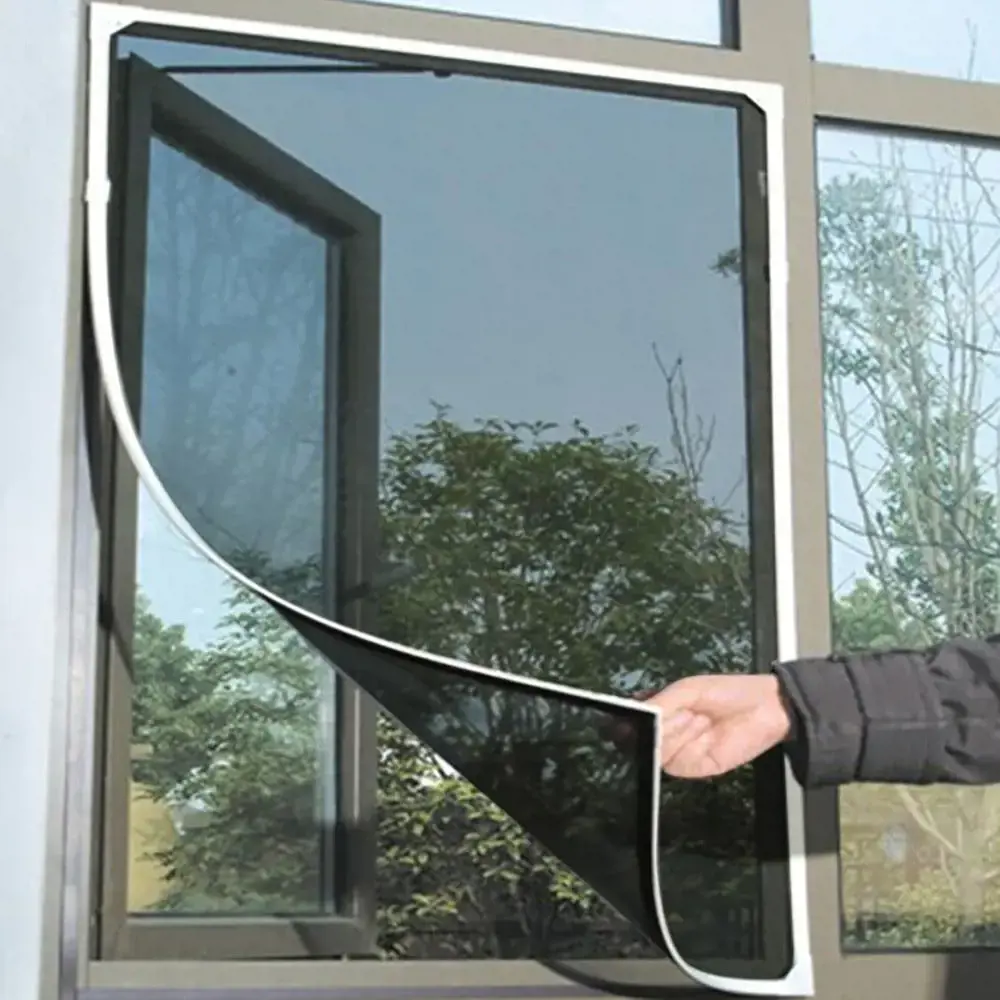
If you are preparing for pest control treatment in your home, there are several steps you can take to ensure that the process goes smoothly and effectively. One of the most important steps is to install screens on your windows and doors to help prevent pests from entering your home.
There are several types of screens available on the market, including traditional wire mesh screens, fiberglass screens, and even screens with built-in pet doors. No matter which type you choose, here are some tips to help you get started.
First, measure the dimensions of your windows and doors to determine the size of the screens you need. You can usually find pre-made screens at your local home improvement store, but if you have unique sizing needs or if you want to customize the screens in any way, you can also order custom screens online.
Once you have the screens, you will need to install them. This process can vary depending on the type of screens you have, but most screens can be installed using fasteners such as clips or screws.
In addition to installing screens, there are other steps you can take to help prevent pests from entering your home. These steps include sealing cracks and gaps in your walls and floors, eliminating sources of standing water, and removing clutter and debris from your yard and home.
By taking these steps before pest control treatment, you can help ensure that the treatment is as effective as possible. By keeping pests out of your home, you can also prevent them from causing damage and posing health risks to you and your family. So take the time to install screens on your windows and doors and do a thorough home inspection before your pest control treatment. Your efforts will pay off in the long run.
12 Fun Activities to Try in Contra Costa County
You may want to see also

Properly dispose of trash and recycling

When it comes to pest control, there are various steps that you can take in order to prepare for the treatment. One important step is to properly dispose of your trash and recycling. Here are some tips on how to do this effectively before pest control.
First and foremost, it is advisable to empty all of your trash and recycling bins before the pest control visit. This will help to reduce the amount of clutter in your home, giving the pest control professional greater access to all areas of the property. You should also ensure that the rubbish bags are securely tied and placed in a closed bin outside of your home.
If you have any larger items of rubbish, such as old furniture or appliances, it is important to dispose of these before the pest control treatment. You can contact your local waste management company to find out about bulky item pick-up services in your area. Alternatively, you may be able to donate these items to a charity or take them to a recycling center.
Another important step is to clean your trash and recycling areas thoroughly. This includes wiping down the inside and outside of the bins, sweeping the area around the bins, and removing any food debris or residue. This will help to deter pests from returning to these areas after the treatment is complete.
It is also a good idea to ensure that your outdoor trash cans are properly secured. This will help to prevent animals such as raccoons and squirrels from accessing your rubbish and potentially spreading pests around your property.
In conclusion, properly disposing of your trash and recycling is an important step to take before pest control treatment. By following these simple steps, you can help to reduce the risk of pests returning after the treatment is complete and ensure that your home remains a clean and comfortable living space.
13 Fun Things to Do in Eagle Pass, TX
You may want to see also

Keep gutters clean and free of debris
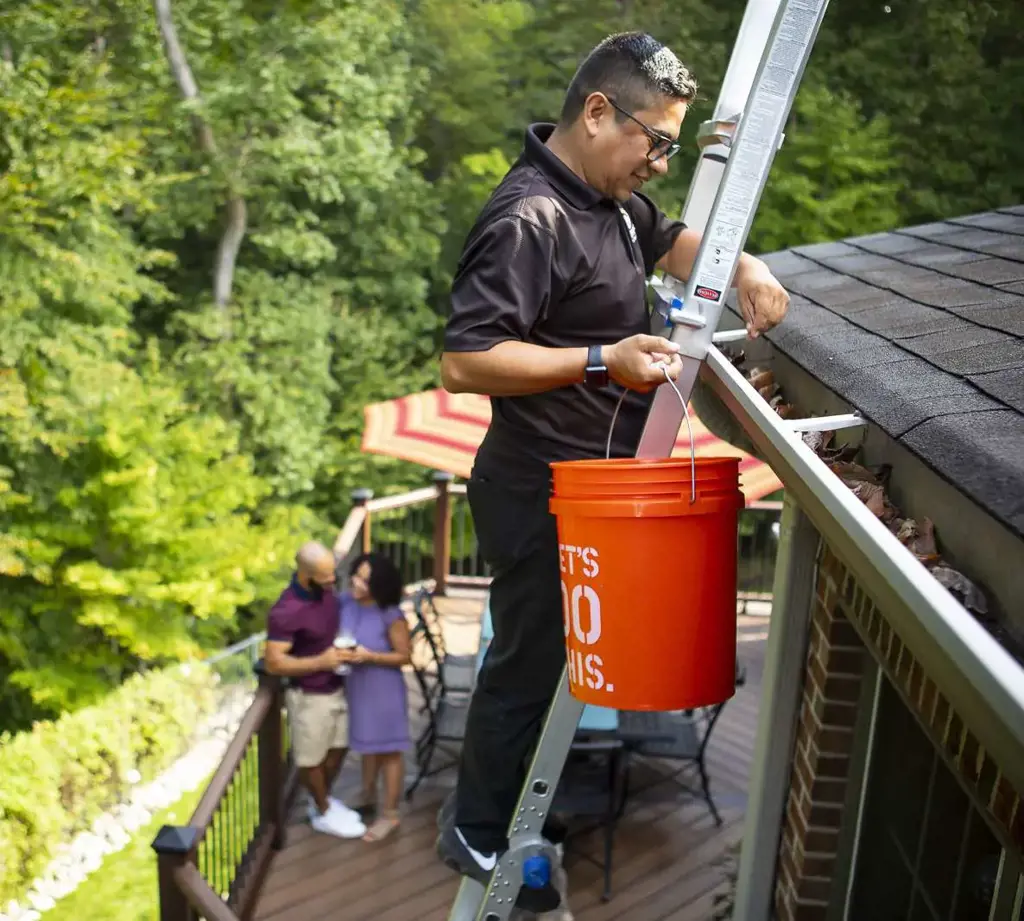
Before scheduling pest control services, there are several important things homeowners should do to prepare. One of these is to keep gutters clean and free of debris. Here's why this is important and how to do it:
Gutters are important for directing rainwater away from your home's foundation. However, they can also be a haven for pests if they are not kept clean. Leaves, twigs, and other debris can accumulate in gutters and create a moist habitat for insects, rodents, and other unwanted critters. These pests can then make their way into your home, where they can cause damage and spread disease.
Keeping gutters clean is a fairly simple task that can be done with basic tools. Here's how to do it:
- Start by putting on gloves and safety goggles to protect yourself from debris and falling objects.
- Use a sturdy ladder to access the gutters. Make sure the ladder is secure, and have a spotter hold it steady.
- Use a small rake or scoop to remove leaves, twigs, and other debris from the gutters. Place the debris in a bucket, and dispose of it according to your local regulations.
- Use a hose to rinse the gutters and flush out any remaining debris. Make sure the water flows freely through the downspouts, and check for any clogs or blockages.
- Inspect the gutters for damage, such as cracks or holes. These can be repaired with a specialized sealant or by replacing the damaged section.
By keeping your gutters clean and free of debris, you can help prevent pests from entering your home and causing unnecessary damage. This is just one of several important steps you can take to prepare for pest control services. Talk to your pest control provider about any other specific recommendations they may have for your home.
11 Exciting Activities to Experience Near Dorney Park!
You may want to see also

Trim back trees and bushes that are touching the home
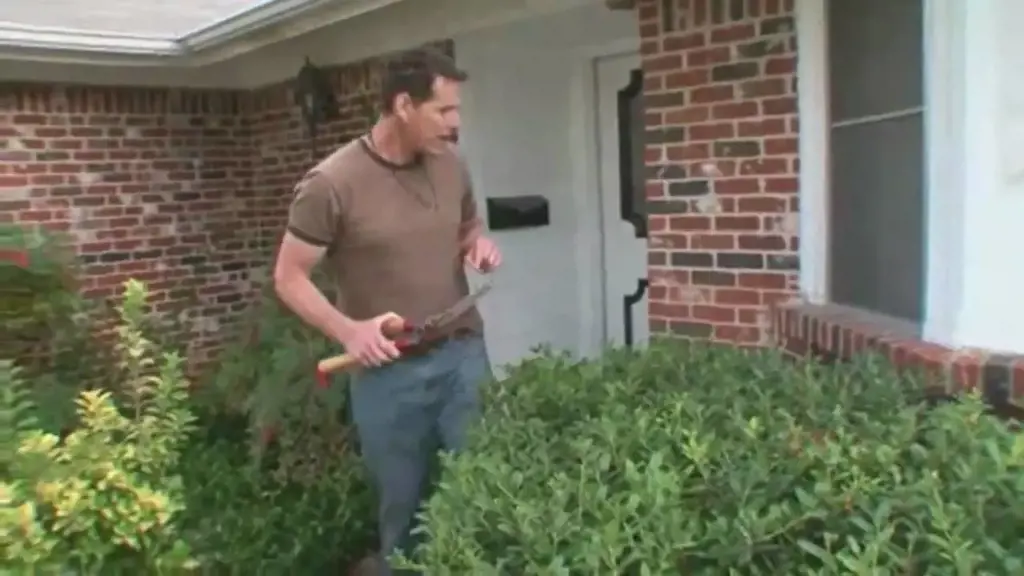
If you've decided to hire a pest control service for your home, there are a few tasks you can do before their visit to help prepare. One of these tasks is to trim back any trees, shrubs, or bushes that are touching your home's exterior.
But why is this important? Pest control professionals agree that trimming back these plants can help prevent pests from making their way into your home. Here are a few reasons why:
Pests use plants as a pathway to your home.
Rodents, ants, and other pests can use trees and bushes as a bridge to get to your home's exterior. By trimming these plants back, you're removing this easy access point and making it more difficult for pests to find their way inside.
Overgrown plants provide hiding spots for pests.
Overgrown bushes and shrubs provide excellent hiding spots for pests. By trimming them back, you're reducing the number of places pests can hide and nest around your home. This makes it harder for them to get comfortable on your property and easier for the pest control service to locate and treat any pests that are already present.
Plants touching the house can damage the exterior.
In addition to providing pathways and hiding spots for pests, overgrown plants that touch your home's exterior can actually damage it over time. Plants can scratch against the house's siding, break through window screens, and even lift up shingles. By trimming plants back, you're protecting your home's external structure from potential damage.
Before your pest control service arrives, take a walk around your home's exterior and look for any trees, bushes, or shrubs that are touching the house. If you find any, use pruning shears or a trimmer to cut them back to a safe distance. Not only will this make your home less appealing to pests, but it will also improve the overall appearance of your property.
14 Must-Do Things in Aswan for a Memorable Experience
You may want to see also

Fix any plumbing leaks
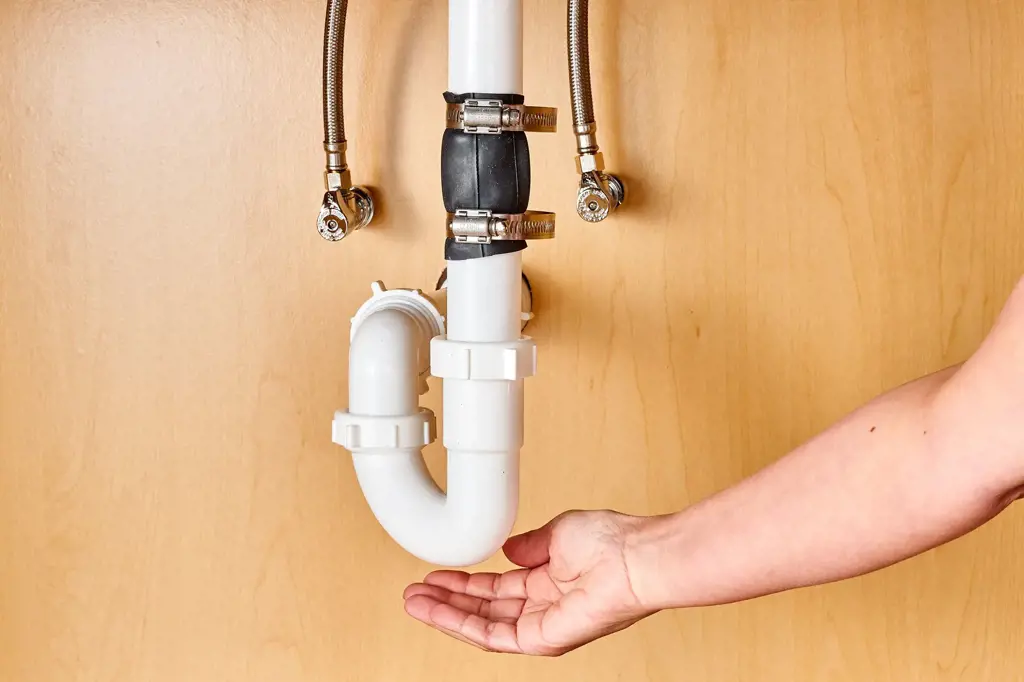
Pest control is an essential process that helps to keep your home free from unwanted insects and animals. However, before the pest control company arrives at your home, there are a few things you can do to prepare for their visit. One of the most important things you should do is fix any plumbing leaks in your home. Here's why:
Pests Are Attracted to Humidity and Moisture
Most pests - ants, cockroaches, rodents - thrive in damp environments. Leaking pipes create an environment that is perfect for pests to thrive. The moisture and humidity created by leaking pipes can also attract pests from adjacent areas, such as your garden. Fixing plumbing leaks will reduce the humidity level in your home, making it less hospitable to pests.
Prevent Structural Damage
Water damage caused by leaking pipes can harm the structural integrity of your home. When left unrepaired, water can weaken wood, drywall, and other materials, creating the perfect environment for pests like termites to thrive. Termites are known to cause extensive damage to the wood frame of homes and can be swift, silent operators. Fixing plumbing leaks will prevent termite infestation and help to maintain the structural integrity of your home.
Reduce Water Bills
Leaking pipes can waste hundreds of gallons of water each month, leading to higher water bills. By fixing plumbing leaks, not only will you prevent pests and structural damage, you will also save money on your monthly water bill. Consider that a leak in a garden hose that drips twice per second wastes around 1,000 gallons of water annually. Imagine how much water a bigger leak in your plumbing system could waste!
Maintain Good Indoor Air Quality
Water damage caused by leaking pipes can reduce the indoor air quality of your home. The damp conditions created by leaking pipes can encourage the growth of mold and mildew. These can produce spores that can get into your HVAC system and negatively affect the air quality in your home. Fixing plumbing leaks will reduce the moisture levels in your home and prevent the growth of indoor mold, which can cause health problems.
In conclusion, before you schedule a visit from the pest control company, take a thorough look at your plumbing system and fix any defects. Fixing plumbing leaks will ensure that your home is free from pest infestations, prevent structural damage, save you money on water bills, and improve indoor air quality. Consider hiring a professional plumber to help you fix any plumbing leaks before the pest control company arrives.
13 Must-Do Activities at Yosemite National Park in August
You may want to see also

Repair any roofing damage
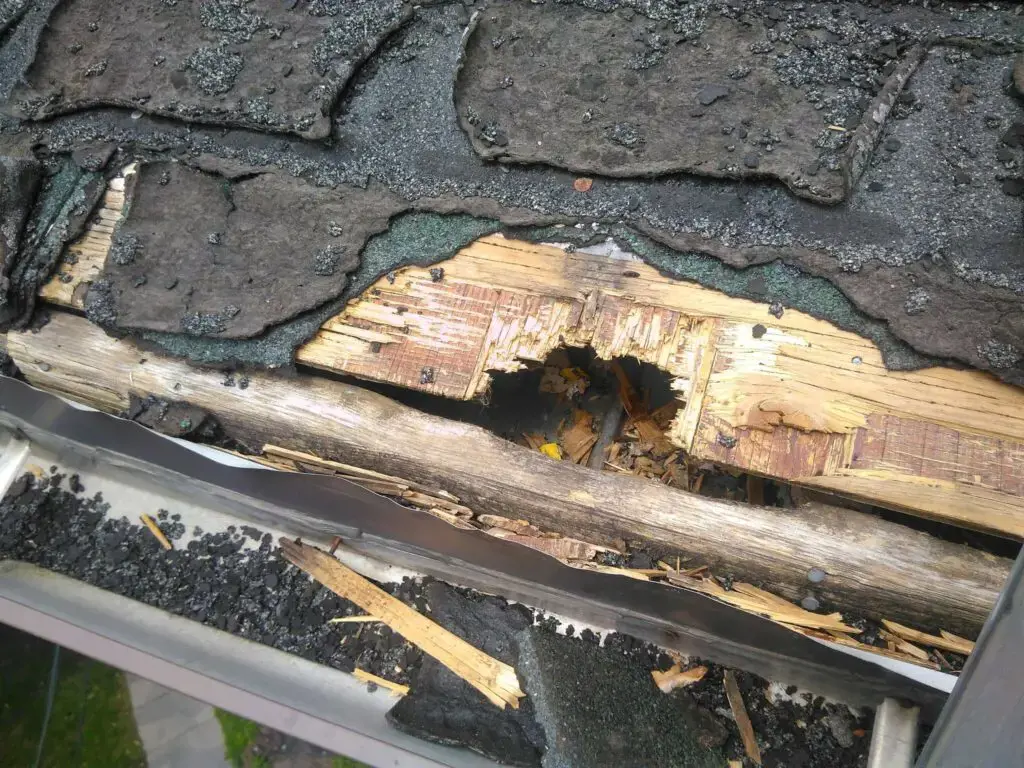
If you're planning on having pest control services performed in your home, there are a few things you can do ahead of time to prepare. One important step is to repair any damage to your roof, which can be an attractive entry point for pests like rodents, squirrels and bats.
Here are some reasons why fixing roof damage is important before pest control:
- Prevent new pests from coming in - If your roof is damaged, it provides an opening for pests to enter your home. This means your pest control efforts may be less effective, as new pests can enter after treatment.
- Keep pests from hiding- Pests like rodents and bats often seek refuge in dark, hidden spaces like holes in the roof. Fixing these holes makes it less likely that they will move in and harder for them to escape.
- Reduce the risk of diseases - Certain pests can carry dangerous diseases that can be transmitted to humans. Any cracks or openings in the roof present an opportunity for pests to get in and potentially contaminate your living spaces. Repairing any damage to the roof minimizes this risk.
So, if you have any leaks, holes or other damage to your roof, it's important to contact a roofing professional to get it fixed before pest control services are performed. Not only will it help to prevent new pest infestations, but it's also a smart move for protecting your home and family from the dangers that pests can bring.
10 Best Things to Do in Thun, Switzerland
You may want to see also

Consult with a professional pest control company for preventative measures
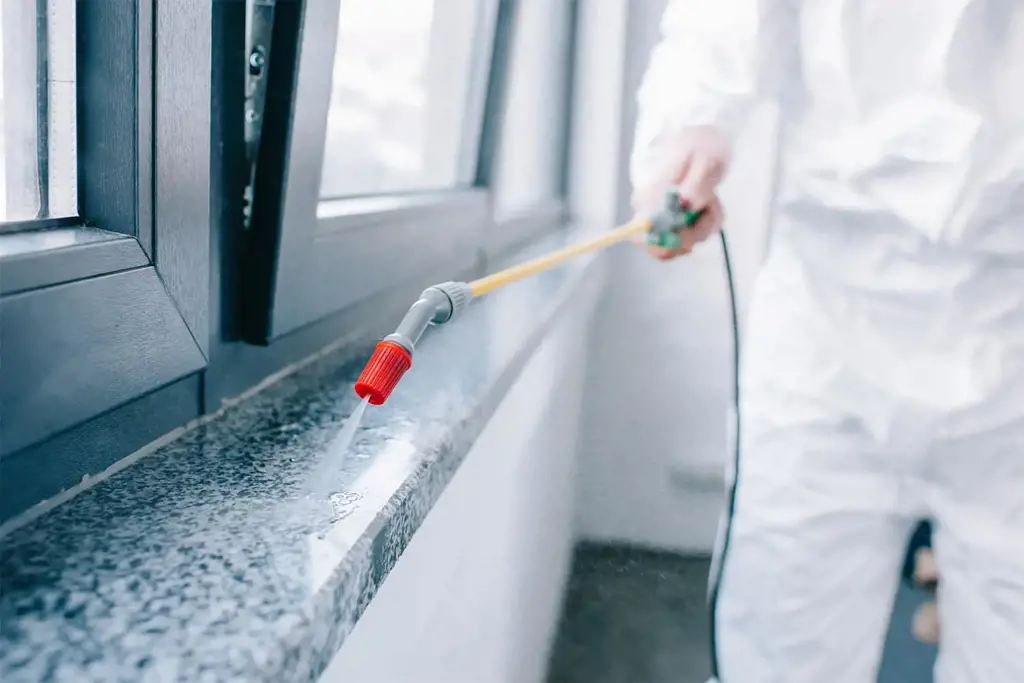
When it comes to pest control, most homeowners may think that it's a reactive process only necessary when an infestation has already occurred. However, taking preventative measures can help you avoid having to deal with a full-blown pest invasion that can be costly and time-consuming to eradicate. Here are some things you should do before pest control to protect your home from future threats.
The first step you should take is to consult with a professional pest control company. A licensed and qualified pest control professional can inspect your property, identify areas of potential infestation, and work with you to come up with a customized plan to address any potential pest problems. Your pest control provider can also provide regular preventative treatments to minimize the risk of future infestations.
Another important thing to do before pest control is to address any areas of your property that may be inviting to pests. This may include clearing away debris, placing trash in secure containers, sealing up holes and cracks around your foundation and walls, and reducing excess moisture in and around your home. You may also want to consider using containers with tight-fitting lids for food storage, as well as planting certain types of herbs or plants that act as natural insect repellents.
In addition to these preventative measures, you should also consider the type of pest control company you choose. Look for a company that uses environmentally friendly products and methods, as well as one that has a solid record of customer satisfaction. You should also ask about warranties or guarantees on their services, as well as whether they offer ongoing maintenance and monitoring to ensure that your property remains pest-free in the long term.
Overall, the best way to protect your home from pests is to take proactive measures before a problem occurs. Consulting with a professional pest control company, making changes to your property to make it less hospitable to pests, and choosing a reputable and reliable pest control provider are all critical steps you should take before pest control to ensure that your home remains free from unwanted visitors.
13 Amazing Free Things to Do in Dayton This Weekend
You may want to see also
Frequently asked questions
Ans: First, make sure that you have informed the pest control company about your specific pest problem. Secondly, remove all items, including pet bowls, children's toys, clothing, and bedding, from the area to be treated. Thirdly, clean and vacuum the area to be treated, especially carpets, floors, and corners.
Ans: Yes, it's a good idea to cover your furniture before pest control because most chemical sprays used in pest control can damage or discolor your furniture. Covering your furniture also protects the surfaces from any dust or residue that may be present after the treatment is complete.
Ans: It's best to remove your pets from the area to be treated during the pest control process. The chemicals used in pest control can be harmful to animals, and they can easily ingest or inhale the residue left over after the treatment.
Ans: This depends on the type of treatment and the severity of the infestation. In most cases, you may be able to return to your home after a few hours. However, if you have undergone fumigation, you may need to stay out of your home for up to 48 hours to allow the chemicals to dissipate. Your pest control company should provide specific instructions for your situation.








5 Comments
Fatimah Mcintosh
Mikey Williams
Majid Rana
AuthorEthan OGallagher
Viajera Compulsiva
Author